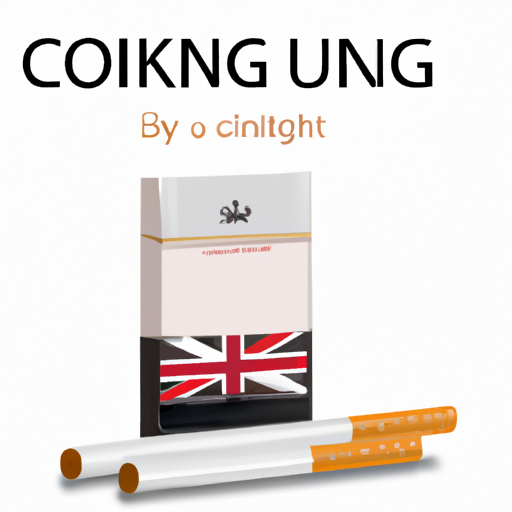
As I sit down on the bench overlooking the bustling streets of London, I take in a deep breath of the crisp winter air. My fingers instinctively reach for my pack of cigarettes that I always keep handy in my coat pocket. I light one up and exhale, feeling the familiar warmth spreading through my body. Smoking has become a routine for me, a moment to pause and reflect, a way to escape the chaos of my daily life. But as I take another drag, I can’t help but wonder about the role of cigarettes in the UK and the impact they have on individuals and the society as a whole.
The UK has a long and complicated history with cigarettes, dating back to the 16th century when tobacco was imported from the Americas. It wasn’t until the early 20th century that cigarettes were mass-produced and became popular among the working class. Since then, smoking has been deeply ingrained in the British culture, with iconic cigarette brands like Marlboro and Benson & Hedges becoming household names.
Despite the decline in smoking rates over the years, cigarettes are still a prevalent part of life in the UK. The latest statistics show that 14.7% of adults in the UK are smokers, with the highest percentage being in Scotland at 17.7%. It’s a habit that has become deeply rooted in our society, with many associating it with socializing, relaxation, and even fashion.
One of the most controversial aspects of cigarettes in the UK is the huge tax that is imposed on them. In fact, the UK has some of the highest cigarette taxes in Europe, with an average price of £10 for a pack of 20. This is a strategic move by the government to discourage smoking, especially among young people. However, it has also created a thriving black market for illicit cigarettes, which are cheaper and often of lower quality.
As I take another drag from my cigarette, I notice a group of teenagers loitering nearby. It’s no secret that smoking is a habit that starts at a young age, with many teenagers picking it up as a way to rebel or fit in with their peers. The UK has strict laws against selling cigarettes to those under 18, but it’s not uncommon to see young people smoking openly in public places. It’s a challenge that the government continues to face, with measures such as banning smoking in public places and graphic warnings on cigarette packs being implemented to discourage young people from smoking.
But despite all these efforts, smoking still remains a significant health concern in the UK. According to the National Health Service (NHS), smoking is the leading cause of preventable death, with around 78,000 deaths in the UK each year attributed to smoking-related illnesses. It’s a staggering number that cannot be ignored, and as a smoker, it’s something that weighs heavily on my mind.
I take another drag, and as I exhale, I can’t help but feel a tinge of guilt. The reality is that smoking is a highly addictive habit, with nicotine being the main culprit. Over time, smoking leads to physical and psychological dependence, making it incredibly difficult for smokers to quit. I’ve tried quitting several times, but the cravings always seem to pull me back in.
Despite the health risks, the widespread availability and social acceptance of cigarettes in the UK makes it challenging for smokers to quit. From corner shops to supermarkets, cigarettes are easily accessible, and the fact that they are legal makes it seem like a harmless activity. In fact, many of my non-smoker friends don’t see it as a big deal, and I often find myself justifying and defending my habit.
But smoking goes beyond the individual. It also has a significant impact on the environment. Cigarette butts are the most commonly littered item in the UK, making up almost two-thirds of all litter. Not only are they unsightly, but they also pose a threat to wildlife and can take up to ten years to decompose. It’s a problem that is often overlooked, but it’s one that we as smokers need to take responsibility for.
As I finish my cigarette, I can’t help but reflect on the complex relationship we have with cigarettes in the UK. They are a symbol of rebellion, a social activity, a habit, and an addiction. They are also a health risk, an environmental concern, and a source of controversy. But for me, in this moment, they are a momentary escape, a way to pause and reflect.
I put out my cigarette and continue on with my day, knowing that my habit comes with consequences. But for now, I’ll continue to indulge in my occasional cigarette, knowing that it’s a habit deeply ingrained in the fabric of the UK, for better or for worse.